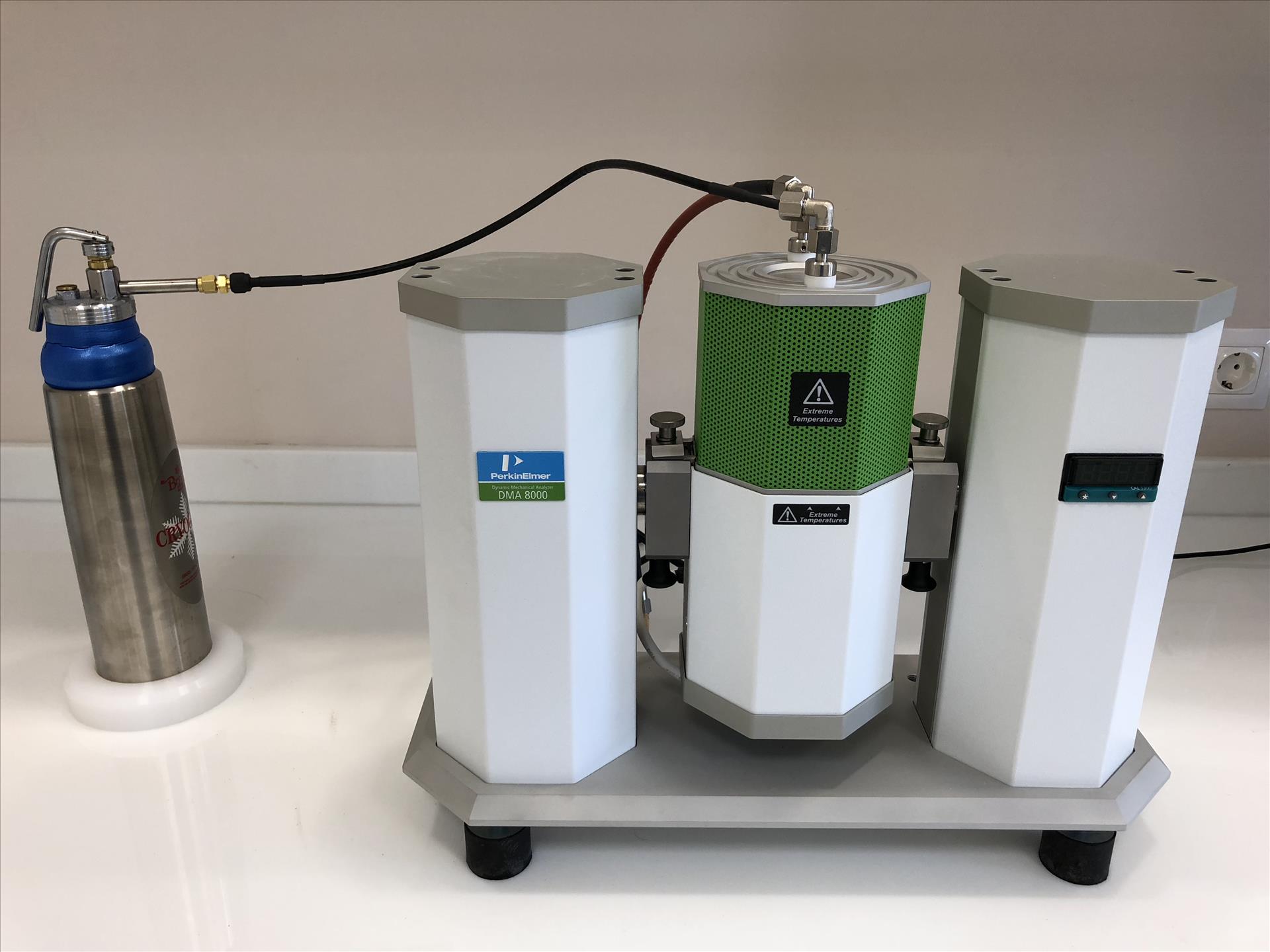DYNAMIC MECHANICAL ANALYZER (DMA)
DMA is an analytical device that measures the viscoelastic properties of the sample in terms of frequency, time, temperature deformation and environmental function using an increasing and decreasing load motor on a sample.
Deformation occurs when we load the load onto the material. If the material is an ideal elastic material, the deformation disappears when the load is removed. The elastic deformation is directly proportional to the load applied to the material and occurs without delay. However, in materials such as polymers, the deformation is not linear and takes place in a delayed manner. The opposite of elastic behavior is viscous behavior. In an ideal viscous material, the deformation rate is directly proportional to the load. Some materials, such as polymers, exhibit both elastic and viscous behavior, and such materials are called viscoelastic materials. DMA records temperature-related visco-elastic properties and determines the modulus of elasticity and damping coefficient by applying a force emitted to the sample.
With ARM's DMA device, polymer, polymer blends, elastomers, composites, fibers, film, resin etc. tests of large or high modulus materials can be made. In addition to the heating function, the DMA furnace allows the operation of the liquid nitrogen cooling system with a temperature range of -150° C to 400° C.
DMA Device: Perkin Elmer DMA8000
Operating Temperature: (-150 ° C) - 400 ° C
Heating Speed: 0.1 ° C / min. - 20 ° C / min.
Frequency Range: 0.01 - 600 Hz
Maximum Force: ± 10 N
Minimum Force: 0.002 N
Operating Modes: Tension, Compression, 3 Point Bending, Shear, Single Cantilever, Dual Cantilever
Information Obtained by DMA;
- Determination of glass transition temperature (Tg),
- Calculation of elasticity module,
- Calculation of damping coefficient,
- Determination of modulus and tan delta values.


